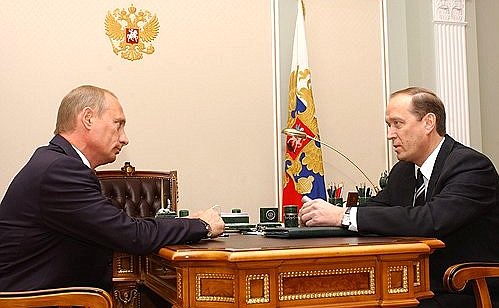
As he met with the Central Election Commission chairman, Mr Putin expressed his hope that the commission would do everything possible for a lawful pre-election campaign with normal competition, free of unfair play, which was too often used in the election race and debates. The commission played a tremendous role here, the President said.
Federal allocations for the election amount to 3.5 billion roubles. The money was to be transferred to the Central Election Commission account no later than 10 days after the issuance of the presidential decree setting the date of the poll, Mr Veshnyakov said. As much as 2.5 billion roubles would be channelled to the Russian regions as early as September – that is three times more than allocations for the previous State Duma election four years earlier. The increase is due to a new system of local election commission remuneration and higher security standards for ballot papers, which dramatically raised the cost of their manufacture.
The maximum sum candidates could accumulate on their accounts and spend on the pre-election campaign grew six-fold as compared to the previous election, according to the new legislation – from 1 million to 6 million roubles for one-mandate candidates and from 40 million to 250 million roubles for political parties and blocs. Election deposits would no longer be token sums—37.5 million roubles instead of 2 million for parties and blocs, and 900,000 roubles for one-mandate candidates.
The parties and candidates running for the State Duma were obliged to notify the election organizers no later than October 1. Parties received the right to convene pre-election congresses since the publication of the relevant presidential decree to approve their election tickets for the federal constituencies.
The Central Election Commission and constituency election commissions were to accept registration papers from September 22 until 6 pm on October 22. The law allocated 10 days for checking signature lists.
Pre-election campaigning in the mass media would start on November 7 and would continue up to December 5. Government television and federal printed media outlets would grant parties and candidates registered for the election free access to the airwaves and print within that time.